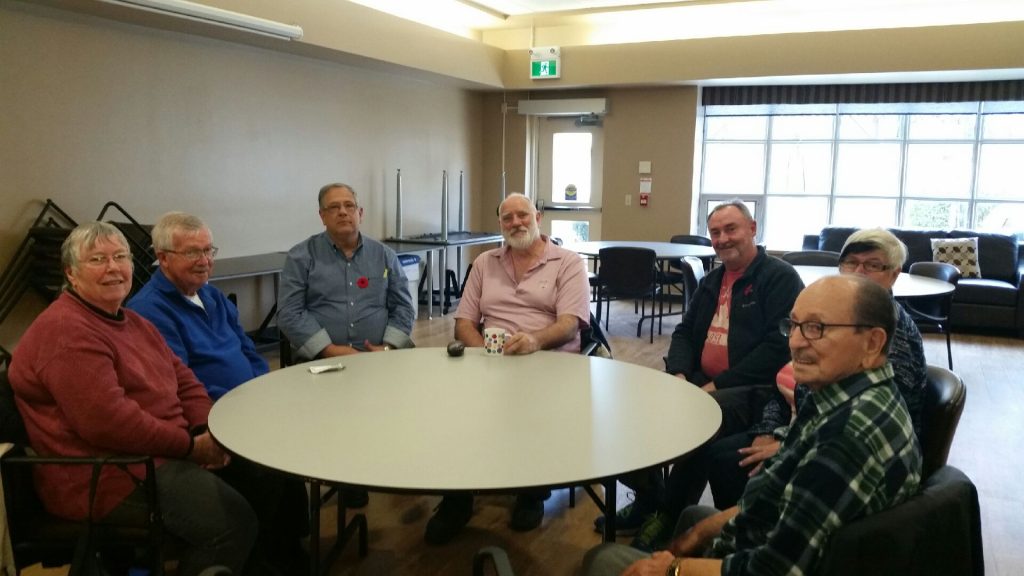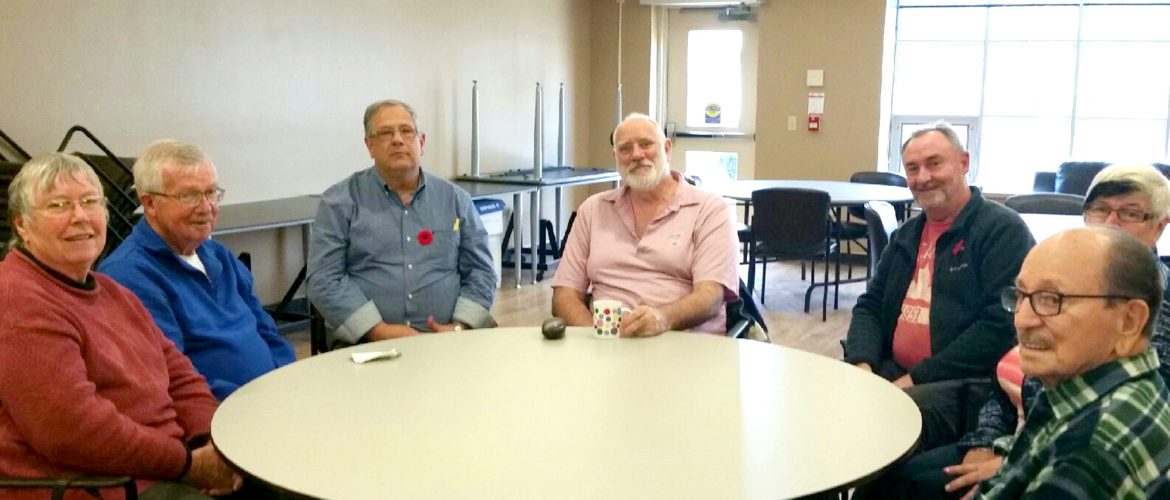A psychiatric nurse by training, Peter White started noticing something was going on with his family member in the early 2010s. “I knew there was something wrong, but [the person] kept telling me it was life changes,” shares the retired healthcare provider from rural Ontario.
Eventually in 2014, his family member was formally diagnosed with Primary Progressive Aphasia (PPA) – a rare form of cognitive impairment that often starts as a subtle language disorder and can progress to the near-inability to speak.
Despite having a healthcare background, Peter says dementia care had changed tremendously from when he was a practicing nurse. There were so many new resources, tips and networks that he simply wasn’t aware of.
One of those resources was a program called “Rural Support for Care Partners for People Living with Dementia.” The group, which received financial support through the Baycrest-led Centre for Aging + Brain Health Innovation’s Spark program, was developed by the Alzheimer Society London and Middlesex (ASLM). It started after Paul realized care partners in rural Ontario were seeking support, but simply couldn’t access it.
Offering support in a rural region

Social worker Paul Yost (pictured wearing a poppy) and Peter White (to Paul’s left) at a Rural Support meeting.
“In a rural area they don’t have the resources – amongst them is transportation,” says Paul, who works out of the Alzheimer Society London and Middlesex. He adds: “In London, say someone isn’t driving anymore, they can still attend our programs by various transit methods. In a rural area they just do not have that.”
Peter, for example, no longer drives due to challenges with his eyesight. He currently lives in Strathroy-Caradoc, Ont., a small city hovering at 20,000 people. Needless to say he doesn’t have access to the same level of transit as a senior living in London, Ont.
The Alzheimer Society developed Rural Support to help people like Peter. The program runs once a month in Newbury, Ont. (population under 500), and caters to caregivers of people with dementia living in the four counties area.
In addition to being one of the only support groups in the rural region of Middlesex County, a key difference between ASLM’s program and others is that it offers a concurrent session for the person experiencing dementia. Often times, the lack of programming for seniors living with dementia is a key barrier in rural areas, making it difficult for their care partner to think about themselves and do things independently.
Rural Support is based on the psychosocial education model. The program (which currently has 13 participants) offers caregivers a network of people going through similar experiences. Both care partners and their family members with dementia benefit from the socialization aspect. However, the education component is geared towards the care partners.
Peter says he’s gained a lot of valuable information from attending the group, adding that past sessions have focused on exploring the different types of dementia, nutrition and techniques for dealing with possible crises. “The program is number one for getting first-class information in a very compassionate setting,” says Peter.
CABHI’s Impact
That compassion piece, according to Paul, is a crucial ingredient of Rural Support. The social worker says often times care partners get neglected both in terms of programming and research. “I think care partners get left behind sometimes – they’re not looked at as much. Research tends to focus on cures, treatments and diagnosing. However, the caregivers are on the frontline and there’s very little that goes into research on how to best support and help them.”
He says that’s why organizations such as Baycrest-led CABHI are so important, adding that few offer financial support for caregiver-related interventions. The support provided through CABHI’s Spark program has allowed Paul and the team at the Alzheimer Society to offer this unique program to rural caregivers like Peter. CABHI’s financial support also offers Paul the opportunity to critically evaluate the program and decide whether it should be rolled out to other rural areas.
He’s conducting pre, mid and post-testing using both standardized caregiver questionnaires, such as the Zarit Burden Interview, and a focus group approach. According to Paul, early results show the group is having a positive impact on care partners. Emergency room visits have also decreased since the program started.
Paul says one of the most rewarding aspects of the program is seeing the bonds formed between people and the support they provide each other. Peter attests to this, adding that group members who live nearby always offer him support. “People are very compassionate; people who live in the neighbourhood will give me a call and ask me if I need a ride.”
Peter is quick to recommend the program to other care partners living in rural areas. “Rural support is really critical to the people who get basically isolated out in the boonies.”


